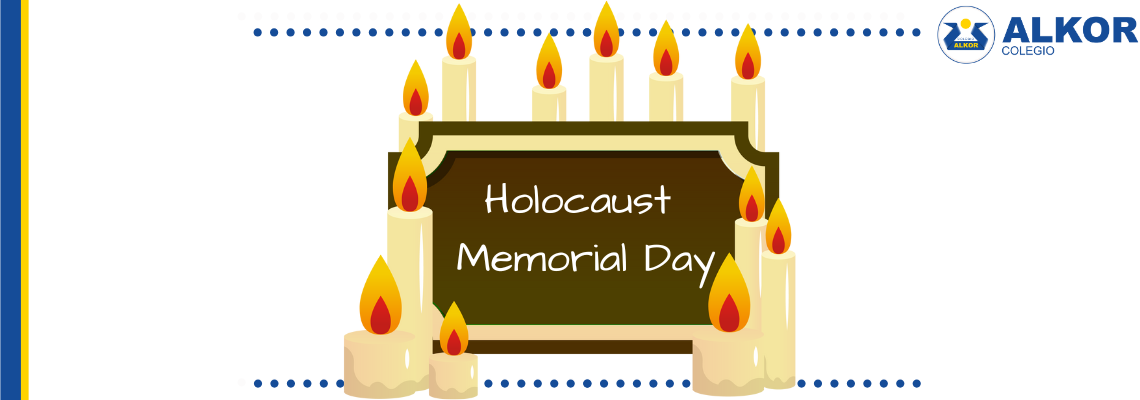
Every year on 27th January, the international community comes together to commemorate the International Holocaust Remembrance Day. This Day was chosen by the United Nations to mark the liberation of the Auschwitz-Birkenau Nazi Concentration and Extermination Camp in 1945. This year marks the 80th anniversary.
Teaching the Holocaust to students is essential for several educational, ethical, and civic reasons. During the last week our students in 4th ESO have been working on the WWII in two ways, making posters about the Reading books related to the WWII and the historical background, collaborating in this way with the Social and History Department.
International Holocaust Remembrance Day
At the age of 15 , students are typically developing greater critical thinking skills, empathy, and historical awareness, making this topic especially relevant and formative.
With this topic we teach students History and Humanity. Students should understand the Past, the Holocaust is a key event in 20th-century history that illustrates the consequences of extremist ideologies, authoritarianism, and prejudice. Understanding it helps students learn how the mistakes of the past have shaped the present.
At the same time we make them reflect on Human Nature. They have explored how hatred, propaganda, and indifference led to this tragedy and reflect on how to prevent similar situations in the future.
At the same time we make them reflect on Human Nature. They have explored how hatred, propaganda, and indifference led to this tragedy and reflect on how to prevent similar situations in the future.
We also prevent intolerance teaching about the Holocaust helps identify the roots of antisemitism and other forms of discrimination and to understand the consequences of indifference because passivity and silence also contribute to human tragedies.











